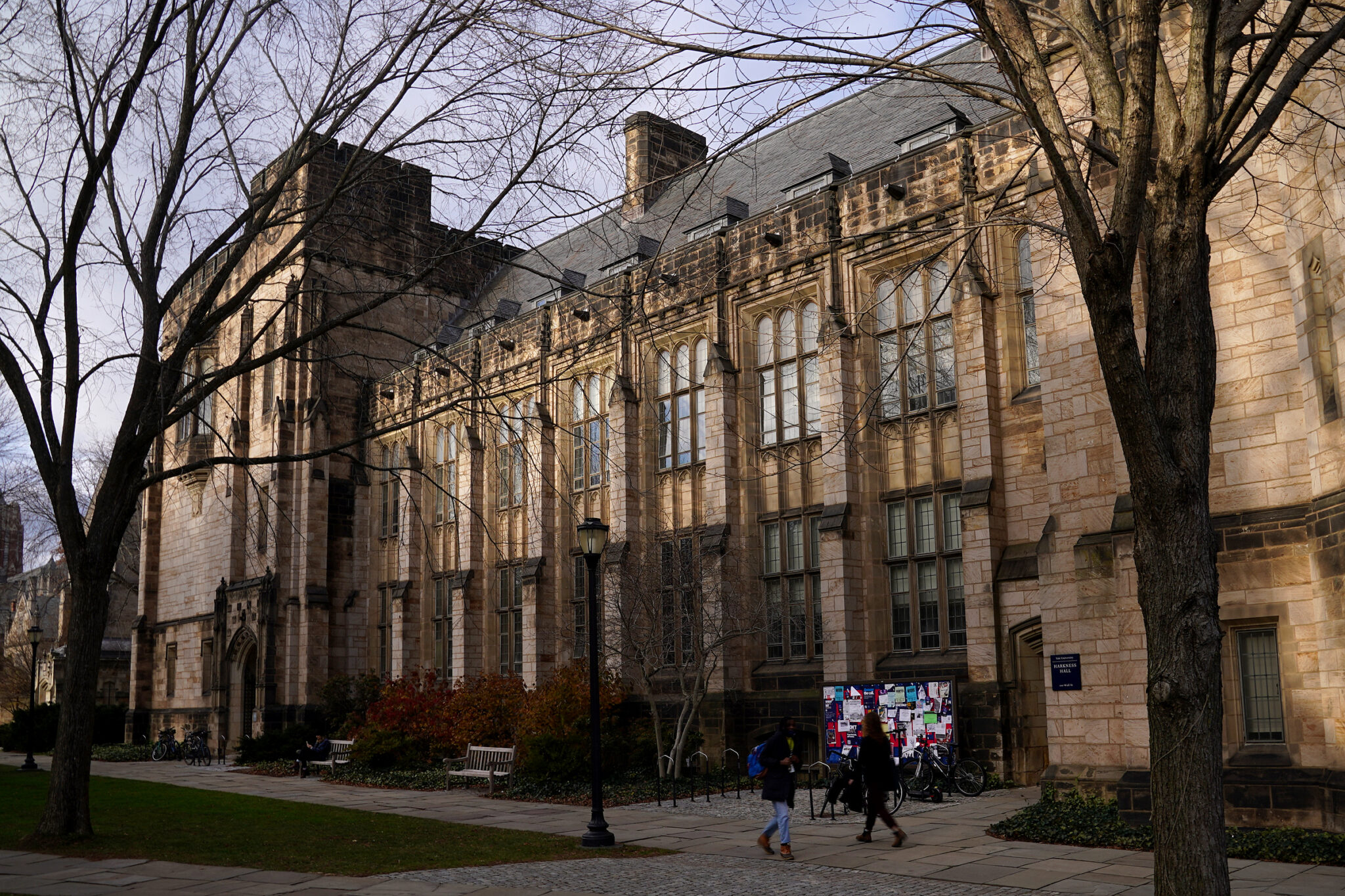Bringing in Bangaliyana: Yale affiliates celebrate Bengali New Year
The Yale Bengali Students Association put on a showcase in Sudler Hall last week to celebrate Pohela Boishakh, the first day of the Bengali calendar.

Tim Tai, Photography Editor
When the sun enters the constellation of Aries in the middle of April, many South and Southeast Asian communities usher in a new year. Last weekend, almost 150 Yale affiliates gathered in Sudler Hall for a cultural showcase in celebration of Pohela Boishakh, the first day of the Bengali calendar.
The program, which was organized by the Yale Bengali Students Association, took place from 11:30 a.m. to 2:00 p.m. on April 16 and included dances, musical performances and poetry recitation, as well as a Bengali meal at the event’s conclusion. Individuals from across the University — undergraduates, graduate students, postdoctoral fellows, faculty and other staff — came together to celebrate Bengali culture and the new year.
“I planned the event with two goals in mind: to create a space that fosters stronger relationships within the Bengali community and share the rich art and literature of our culture with the wider Yale community,” YBSA cultural chair and showcase director Mrinmoyee Guha ’25 wrote to the News. “Over hours of rehearsal with singers, dancers and instrument players, we were already successful in creating an atmosphere where Bengalis felt at home.”
Students and affiliates sang, performed solo and group dances, played classical instruments and recited poetry at the event. Afterward, YBSA organizers served mango juice, shingaras and a variety of Bengali sweets to highlight other aspects of Bengali culture.
Among the dancers was Saiti Srabonti Halder GRD ’25, who choreographed several of last weekend’s dance performances. Shanta Nag, a cell biology research associate at the School of Medicine, played the keyboard, and New Haven-based freelance writer and researcher Upahar Shah played the tabla.
“To me, choreography is like a painting on a canvas,” Halder told the News. “I incorporated different elements of South Asian Classical dance forms such as Manipuri and Bharatnatyam, which blend in seamlessly with Rabindranath Tagore’s eclectic compositions. It was absolutely thrilling to be able to deliver these compositions on the joyous occasion of Pohela Boishakh to the Bengali community and to the greater Yale community.”
Aranyo Ray ’25, the YBSA communications chair and co-chief of logistics for last weekend’s showcase, told the News that as a Bengali international student, he has found it hard to find campus spaces that “celebrate or even highlight” his culture.
YBSA, Ray explained, first formed last year to fill the gap in spaces for Yale’s Bengali community on campus.
“For the longest time, Bengali culture has remained largely unrepresented at Yale,” YBSA social media
coordinator and co-chief of showcase logistics Nawal Naz Tareque ’25 told the News. “Being able to provide Bengalis of various backgrounds a fraction of that representation – while having fun during rehearsals and costume selection – gave me immense fulfillment. A plethora of Bengali history and culture remains untold. I’m very excited to plan bigger projects next year with even higher ambitions.”
Looking to years ahead, Ray said YBSA hopes to “add more Bangaliyana to Yale’s campus,” referencing a term — Bangaliyana — that describes the cultural essence of being Bengali.
The significance that the solar new year holds varies among communities across the South and Southeast Asia region. In Bangladesh, Pohela Boishakh is marked by colorful processions, music and dance performances and traditional food. Many parts of the country also hold Boishakhi fairs, which include various agricultural products, artisan crafts, toys and sweets as well as merry-go-rounds, puppet shows and other forms of family-oriented entertainment.
Pohela Boishakh is generally celebrated on April 14 in Bangladesh and on April 15 in the Indian states of West Bengal, Tripura, Jharkhand and Assam.
In Bengali, Pohela means “first,” and Baisakh is the first month of the Bengali calendar.







